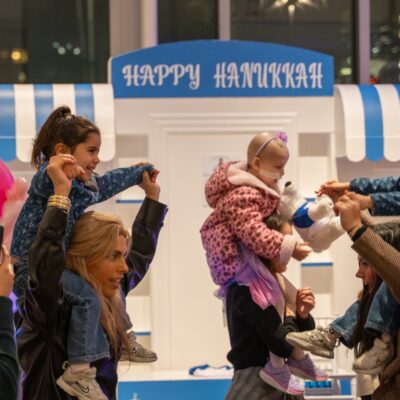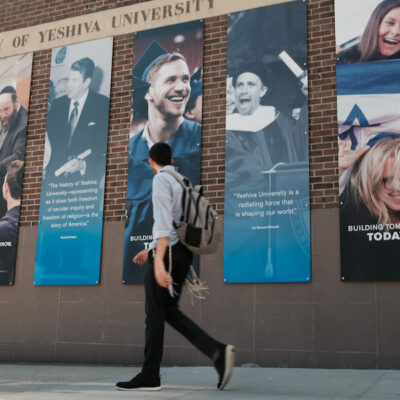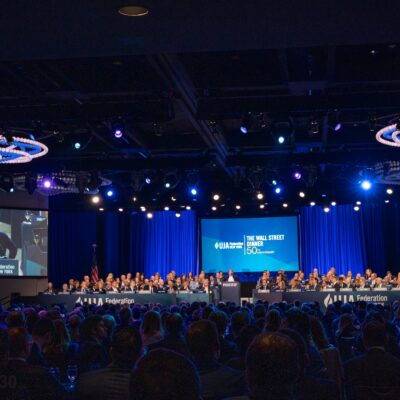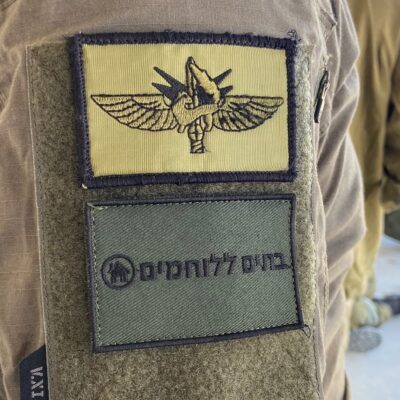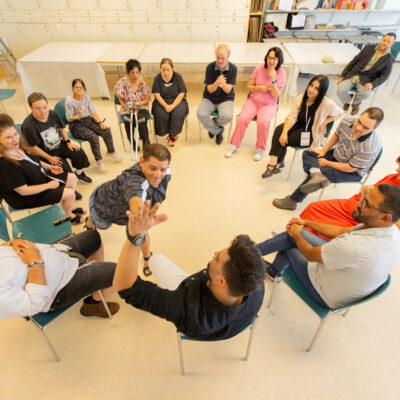Opinion
career prep
Working at a summer camp can launch your career (and your life)
This spring, as young people work to secure summer jobs in the hopes that life soon will return to “normal” and the COVID-19 pandemic finally will be behind us, we have some potentially life-changing advice: Consider working at a summer camp.
After a year of isolation, camp is the perfect outlet for folks who’ve been tied to their computer screens for work or school and a great way to, once again, engage with Jewish culture in an in-person group setting.

Camp Tawonga
Yes, prestigious internships at impressive companies are enticing resume-builders, but to jump-start your professional and personal life, in a truly fun and adventurous way, look no further than your local overnight camp.
We’re not saying it’s easy. In fact, working at Camp Tawonga, one of the many Jewish summer camps opening for the 2021 season, is often described by staff as “one of the hardest jobs they’ve ever loved.” But the responsibility of caring for children, the freedom to develop creative programming, and the teamwork and problem-solving required provide invaluable skills and experiences that last long beyond the last session and have been known to guide and define career choices.
While working at camp, young people grow in extraordinary, multi-faceted ways—learning to be leaders and role models, for example, as well as how to be creative and help others bridge culture gaps and other divides. Such skills boost the odds they’ll succeed in school, work, relationships and life. What’s more, within camp’s safe environment, they’ll cultivate skills related to safety, security, and specialized curricula—all of which can be hard to pick up in real-world scenarios.
In a 2019 survey of Tawonga staff conducted by the Foundation for Jewish Camp, 96% reported that working at camp helped them grow personally and professionally. A key pillar of our mission is helping children build esteem, which goes for the staff as well. At camp, differences are celebrated, and all voices are lifted up. Spending time in this safe, encouraging, loving space empowers campers and staff and promotes strong identity-building. Ninety percent of these same staff members reported that their experience at a Jewish camp positively affected their Jewish identity.
We’ve also heard firsthand from former summer staff, now in all types of professional roles, about how being responsible for 12 campers, navigating parents’ and campers’ expectations, planning menus for hundreds of people, and so much else they did at camp gave them valuable on-the-job training. They’ve harnessed the confidence they gained learning on-the-go: to engage more actively in the classroom, the office, or wherever they work, as well as to pursue leadership opportunities and excel in those roles.
Additionally, camp is the perfect setting for creativity and risk-taking. Many staff alumni have used their experiences creating programs as a springboard into entrepreneurship. In 2020, for example, Emmett Verba, who worked in Tawonga’s kitchen, launched Emmett Cooks, an inventive meal-delivery business. Zach Stein is a startup founder twice over, most recently with Carbon Collective, an online investment advisory firm focused on companies committed to climate solutions. “Every professional should work at a summer camp,” according to Zach. “It will be one of the hardest, most fulfilling, and educational roles you’ll ever have. I still draw on my summers at Tawonga as the most formative in who I am as a leader and manager of our team.”
Culture is everything at Tawonga. Central to each training—whether the topic is anti-racism, diffusing conflict or finding consensus—is building a cooperative community, so every camper (and staff member) can flourish. Linda Shak, former Tawonga supervisor, considers her supervisory experience at Tawonga transformational in her career. She now works in philanthropy and draws on those lessons often, especially when it comes to giving feedback compassionately and effectively and motivating colleagues.
Finally, summer staff are immediate role models for hundreds of impressionable young campers who hang on their counselor’s every word—and every dance move. The opportunity to inspire positive growth is powerful for young professionals. According to Andy Grossman, a former counselor and currently a K-8 school principal, “Any time I enter a school building, I try to take small moments to make sure all our students are seen and heard, and that experience drives me in the work.” He continues: “This perspective came directly from my experience as a staff member at Camp Tawonga.”
Matt Beagle, journalist and audio producer, remarked, “Being a counselor has made me a better parent and really is the only training I had before becoming a dad.” Quite literally, his Tawonga experience taught him how to be a role model. “As a counselor, I learned how to engage with kids from different age groups, communicate effectively with them and build mutual respect.”
The 2021 summer camp season is fast approaching and with it the literal breath of fresh air so many of us need right now. Especially after the year we’ve all endured, it’s essential that this year’s staff members be enthusiastic, fully on board and ready to give their all to campers. For campers, counselors and everyone at Tawonga, this summer will mark an especially long-awaited return to our community, our culture, and the setting where lifelong friendships take root. Take our word for it, you won’t regret a summer spent at camp.
Jamie Simon and Casey Cohen are Camp Tawonga’s Chief Executive Officer and Communications and Operations Director, respectively. Both started their careers as summer staffers at Tawonga in the early 2000s.

 Add EJP on Google
Add EJP on Google
